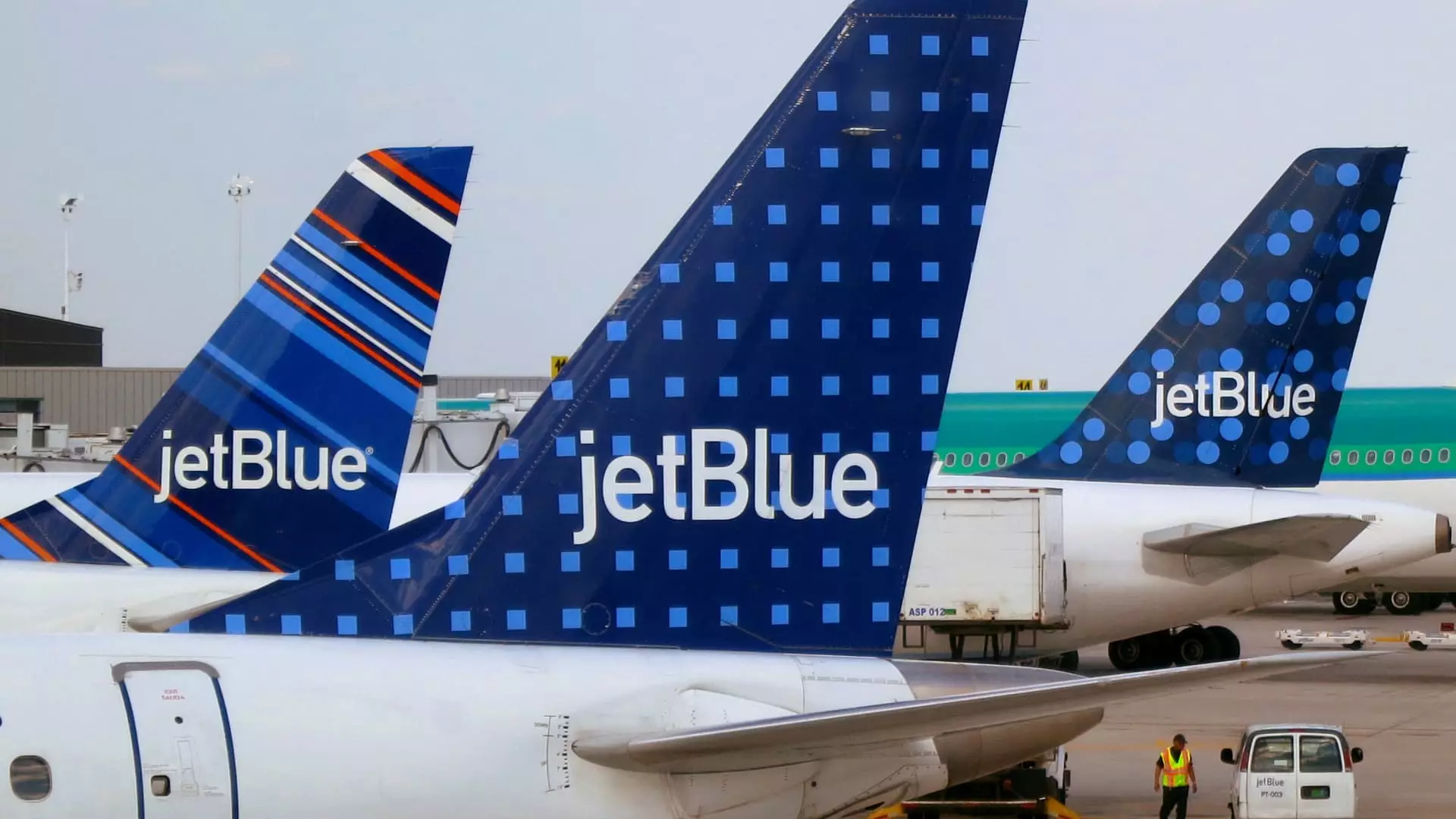In a notable move, the Department of Transportation (DOT) has imposed a $2 million fine on JetBlue Airways, marking a pivotal moment in the enforcement of regulations related to chronically delayed flights. This unprecedented penalty highlights not just the airline’s operational struggles but also sets a benchmark for accountability within the aviation industry, signaling to all carriers that consistent reliability is expected for air travel. The fine stems from JetBlue’s failure to maintain reasonable flight schedules on certain routes, causing passengers to experience repeated delays.
The DOT’s assessment found that JetBlue operated four specific routes that suffered from alarming delay statistics. Between June 2022 and November 2023, these routes were subject to at least 145 delays. The affected connections include flights from JetBlue’s primary hub, John F. Kennedy International Airport (JFK), to various destinations including Raleigh-Durham International Airport (RDU) in North Carolina, Orlando, Florida, and Windsor Locks in Connecticut. The implications of such delays influence not only passenger satisfaction but also operational efficiency and overall public perception of the airline.
Furthermore, according to the DOT’s criteria, a flight is classified as “chronically delayed” if it is frequently late, demonstrating a pattern of failure that calls into question the airline’s scheduling integrity. JetBlue’s designation as a primary contributor—responsible for over 70% of delays on the discussed routes—was a significant factor in the decision to impose the fine. This raises serious concerns about how airlines manage their schedules, especially in a highly competitive market where consumer priority is punctuality and efficiency.
The fine serves as a stern warning to the airline industry, with Transportation Secretary Pete Buttigieg stating that the government’s action is a clear message: flight schedules must align with reality. The need for robust accountability in the airline sector has never been more pressing, as passengers increasingly expect not only affordability but also punctuality. This increased scrutiny encourages airlines to re-evaluate their operational protocols and align their expectations with the realities of flight management.
The DOT’s investigation does not stop at JetBlue; it is looking into similar issues with other airlines, underscoring the potential for widespread operational reform across the industry. By setting such standards, the government can help ensure that air travel maintains its integrity as a dependable mode of transportation in the face of growing criticism over service reliability.
In response to the fine, JetBlue has mentioned the need for enhanced governmental support, particularly in the areas of air traffic control (ATC) staffing and modernization. The airline argues that inefficiencies in the broader air transportation system contribute to their operational challenges. Executives from other major airlines, such as Delta and United, support this assertion, suggesting that addressing ATC staffing shortages and technological upgrades is crucial for improving overall service reliability.
JetBlue’s statement emphasizes that accountability for flight delays should not solely fall on the airlines; it should also consider the systemic issues affecting air travel. The company has advocated for the U.S. government to prioritize the modernization of antiquated ATC technology, which, according to JetBlue, cripples the efficiency with which flights can be managed and dispatched.
As JetBlue faces the consequences of its operational oversights, it’s vital to consider the ramifications for passengers. The DOT’s action not only rewards affected customers with compensation but also reinforces passenger rights in the travel industry. It reflects a commitment to ensuring that air travel is not only accessible but reliable. Furthermore, as JetBlue’s on-time performance data reflects an improvement, dropping only slightly to 71.3% from the prior year’s 64.9%, there is hope that such regulatory actions will encourage better management strategies.
Ultimately, the landscape of air travel is ever-changing, and the JetBlue case opens the door for significant discussions about what accountability looks like in aviation. With ongoing investigations and potential reforms, travelers may begin to witness a new era of operational reliability across the industry, a necessary evolution that could ultimately restore faith in airline travel.


Leave a Reply